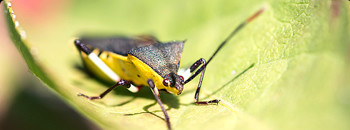
July is National Picnic Month and a great time to combine family, friends, and food with outdoor games and sunshine. Whether it’s hosting an impromptu picnic in the backyard or taking sandwiches to the kid’s ballgame, picnics create memories that will last a lifetime. But the recipe for a successful picnic doesn’t end there. It is just as critical to keep your family safe from mosquitoes, ticks, noxious weeds, and other harmful pests that can cause West Nile virus, Lyme disease, severe allergic reactions, and more.
“We are committed to raising awareness for pest prevention that can ultimately improve the quality of outdoor activities,” said Karen Reardon, vice president, public affairs, at RISE (Responsible Industry for a Sound Environment) ®. “For example, when people step outdoors during mosquito season it should be just as automatic to think about repellents or pest-prevention as it is to apply sunscreen to protect against sunburn.”
RISE is sharing the following facts and tips to help keep people safe from hazards while enjoying outdoor activities all summer long.
Make Yourself Mosquito Aware
Mosquitos are spreading West Nile virus across the nation at alarming rates. In fact, 2012 was the worst year on record with 286 deaths, according to U.S. health officials. Steps to protect yourself and your family this summer include:
- Cover up with long sleeves and pants, especially during dawn and dusk hours when mosquitoes are most active.
- Apply insect repellent on exposed skin – like DEET – to protect family and friends from painful mosquito bites.
- Avoid areas where there is standing water as that is a mosquito breeding ground.
Prevent Ticks from Tagging Along
Ticks are difficult-to-detect insects that can transmit harmful diseases. Lyme disease is the most commonly reported vector-borne illness in the U.S., most prevalent among children, followed by adults ages 40 to 55, according to the Center for Disease Control and Prevention. Some tips to keep you out of harm’s way include:
- Avoid wooded, damp, dark areas or brushy fields where ticks live, and use picnic tables instead the ground.
- Inspect and properly remove ticks in hard to see areas such as inside the belly button, under arms, around ears, in hair, and the back of knees as these are places that commonly attract ticks.
Recognize Poison Ivy
Approximately 85 percent of the population will develop an allergic reaction if exposed to poison ivy, oak, or sumac, according to the American Academy of Dermatology. Helpful hints for dealing with certain outdoor plants include:
- Remember the saying, “leaves of three, let it be” to help identify the plant.
- Wash pets after they have been playing in near potentially affected, wooded areas.
- Clean outdoor tools and wash clothing in hot water to prevent exposure to the plant from spreading.
Effective preventative treatments to yards and picnic areas help reduce the occurrence of ticks and poison ivy. Read and follow all label directions when using repellents and outdoor pest control products. For more information on staying safe from harmful pests, visit www.DebugTheMyths.com and join the conversation on Facebook and Twitter.

